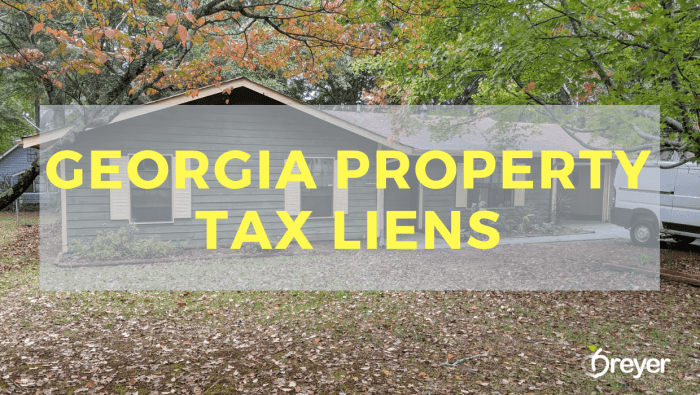How to buy tax delinquent property in Arkansas? It sounds risky, right? But with the right knowledge and a bit of savvy, snapping up a bargain property in the Natural State is entirely possible. This guide will walk you through the process, from finding suitable properties and navigating the auction process to understanding the legal and financial implications.
We’ll demystify the jargon, highlight potential pitfalls, and equip you with the tools to make informed decisions. Get ready to uncover hidden opportunities and potentially transform a distressed property into a profitable venture.
Arkansas offers a unique pathway to acquiring properties at significantly reduced prices through its tax delinquent property system. Properties become delinquent due to unpaid property taxes, leading to a process where the state or county can seize and sell them at auction. This creates opportunities for astute investors to acquire properties below market value, but it’s crucial to understand the intricacies involved.
This guide provides a comprehensive overview of the entire process, from initial research to post-purchase procedures, ensuring you are well-prepared for this potentially rewarding yet complex undertaking.
Understanding Arkansas Tax Delinquent Property

Source: netsworths.com
Buying tax delinquent property in Arkansas can be a lucrative investment opportunity, but it requires understanding the process and the properties involved. This section will clarify how properties become delinquent, the types you might encounter, and where to find relevant information.
The Process of Tax Delinquency in Arkansas
Properties become tax delinquent in Arkansas when the property owner fails to pay their property taxes by the due date. Arkansas counties are responsible for collecting these taxes. After the due date, a process of penalties and interest accrual begins. If the taxes remain unpaid after a certain period (usually several months), the county typically initiates a process to sell the property at a tax sale to recover the outstanding taxes and fees.
This process varies slightly between counties, so it’s crucial to check with the specific county tax collector’s office for exact procedures. The length of time before a property goes to sale can also vary.
Types of Tax Delinquent Properties in Arkansas
The properties available at tax sales range widely. You might find residential properties, commercial buildings, vacant land, or even agricultural properties. The condition of these properties varies significantly; some might be well-maintained, while others could require extensive repairs. It’s essential to conduct thorough due diligence before bidding on any property. Some properties might be encumbered by liens or other claims, which could impact ownership.
Understanding these potential complications is vital for a successful purchase.
Resources for Finding Tax Delinquent Property Information
Information on tax delinquent properties in Arkansas is primarily available at the county level. Each county’s tax collector’s office maintains a list of properties with outstanding taxes. You can typically find this information on the county’s website, or by contacting the tax collector’s office directly. Some counties may also publish lists in local newspapers or other public notices.
Additionally, some private companies compile and sell lists of tax delinquent properties; however, always verify the information independently through official county sources.
Common Reasons for Tax Delinquency
Several factors contribute to properties becoming tax delinquent. Common reasons include financial hardship, property abandonment, disputes over ownership, and even simple oversight. For instance, an elderly homeowner might struggle to manage their finances, leading to unpaid taxes. An inherited property with unclear ownership could also result in tax delinquency. Sometimes, owners simply forget to pay their taxes.
Understanding these diverse reasons helps in assessing the potential risks and rewards associated with purchasing tax delinquent properties.
Locating Tax Delinquent Properties

Source: carrot.com
Finding tax delinquent properties in Arkansas requires a systematic approach, combining online research with potential offline inquiries. This process involves navigating county websites and understanding the information presented. While the specifics vary slightly from county to county, the core principles remain consistent.
Arkansas doesn’t maintain a centralized database for tax delinquent properties. Therefore, your search will primarily focus on individual county websites. Some counties also offer offline resources, such as public records offices, though online methods are generally more efficient and accessible.
Accessing County Tax Records Online
Locating tax delinquent properties in Arkansas begins with identifying the county where the property is located. Each county’s website will have its own method for accessing tax information, but many follow a similar structure. This step-by-step guide offers a general approach; you may need to adjust based on the specific county’s website.
- Navigate to the County Website: Find the official website for the Arkansas county containing the property you are interested in. A simple Google search using “[County Name] Arkansas County Assessor” or “[County Name] Arkansas Tax Collector” will usually lead you to the correct site.
- Locate the Tax Assessor/Collector’s Office: Most county websites have a section dedicated to the Assessor or Tax Collector’s office. This section usually contains links to property tax information.
- Search for Property Tax Records: Look for options like “Property Search,” “Tax Records,” or “Delinquent Tax List.” These sections often allow you to search by property address, owner name, or parcel ID number.
- Filter for Delinquent Properties: Many county websites allow you to filter search results to show only properties with delinquent taxes. Look for options like “delinquent taxes,” “tax liens,” or similar filters.
- Review Property Details: Once you find a potential property, carefully review the details provided. This information usually includes the property address, owner name, tax amount due, and the date the taxes became delinquent.
Arkansas County Property Tax Information Access Methods
The methods for accessing property tax information vary across Arkansas counties. This table provides a general overview; always check the individual county website for the most accurate and up-to-date information.
| County | Online Access Method | Offline Access Method | Notes |
|---|---|---|---|
| Pulaski | Online search portal with delinquent tax filters | County Assessor’s office | Highly detailed online system |
| Benton | Online search with basic delinquent tax information | County Treasurer’s office | May require further inquiry for detailed information |
| Washington | Online search with downloadable delinquent tax lists | County Clerk’s office | Regularly updated downloadable lists |
| Sebastian | Online property search with delinquent tax status indicator | County Collector’s office | Requires understanding of the status indicators |
Typical Information in a Tax Delinquent Property Listing, How to buy tax delinquent property in arkansas
A typical tax delinquent property listing will include key details to help you assess the property’s value and the tax delinquency. While the exact format varies, expect to see information similar to the following visual representation.
Imagine a rectangular box divided into sections. The top section displays the Property Address (e.g., 123 Main Street, Anytown, AR 72XXX). Below that, you’ll find the Owner’s Name (e.g., John Doe). The next section shows the Parcel ID Number (a unique identifier for the property). A significant section displays the Amount of Delinquent Taxes (e.g., $5,000) and the Date of Delinquency (e.g., 01/01/2023).
Finally, there might be a section indicating the Legal Description of the property (a detailed description of the property’s boundaries) and a link or contact information for further inquiries.
The Bidding Process and Auction Participation

Source: retipster.com
Buying tax-delinquent property in Arkansas involves participating in a tax sale auction. Understanding the process, including the different auction types and procedures, is crucial for success. This section will Artikel the steps involved in registering and participating in these auctions, explain common auction terms, and compare online and in-person auction experiences.
Arkansas Tax Sale Auction Types
Arkansas counties utilize various methods for conducting tax sales. While the specifics might vary slightly by county, the most common types are in-person auctions held at a designated location, and increasingly, online auctions conducted through a dedicated platform. In-person auctions offer immediate interaction with other bidders and the opportunity to inspect the property beforehand, while online auctions expand accessibility but require familiarity with online bidding platforms and may lack the immediate feedback of an in-person setting.
Some counties might even employ a hybrid approach, combining online and in-person bidding options.
Registering for and Participating in a Tax Sale Auction
Registration requirements vary depending on whether the auction is online or in-person. For in-person auctions, you’ll typically need to register on-site on the day of the auction, often presenting a valid photo ID and possibly providing proof of funds to demonstrate your ability to pay if you win a bid. Online auctions require pre-registration, which usually involves creating an account on the auction platform, providing identification, and sometimes a credit check or deposit.
Once registered, you can review the available properties, examine the property details including any liens or encumbrances, and place bids. In both online and in-person auctions, you must understand the bidding increments and adhere to the auctioneer’s instructions. After placing a bid, you will need to be prepared to pay the winning bid amount promptly according to the auction’s terms and conditions.
Failure to do so can result in forfeiture of your bid and potential penalties.
Common Auction Terms
Understanding common auction terms is essential for successful participation. Here are a few examples:
- Upset Price: The minimum bid amount set by the county. This is the starting point for bidding. If no bids reach the upset price, the property may not be sold.
- Opening Bid: The first bid placed on a property. This bid must meet or exceed the upset price.
- Bid Increment: The minimum amount by which subsequent bids must increase. This is often specified by the auctioneer or platform.
- Redemption Period: The timeframe after the auction during which the previous owner can reclaim the property by paying back all delinquent taxes and fees, plus penalties and interest. This period varies by county and is a critical consideration for buyers.
- Certificate of Purchase: The document issued to the winning bidder after a successful bid, representing ownership of the tax lien or the property itself (depending on the auction type).
Online vs. In-Person Auctions: Advantages and Disadvantages
| Feature | Online Auction | In-Person Auction |
|---|---|---|
| Accessibility | Broader reach; accessible from anywhere with internet | Limited to those who can physically attend |
| Property Inspection | Often requires independent inspection prior to auction | Allows for on-site inspection before bidding |
| Bidding Process | Convenient and transparent; bidding history often visible | Can be fast-paced and competitive; potential for bidding wars |
| Transparency | Auction platform often provides detailed property information | Relies on auctioneer’s announcements and provided documents |
| Payment | Typically requires immediate online payment | Usually requires immediate payment on-site |
Legal and Financial Considerations: How To Buy Tax Delinquent Property In Arkansas

Source: cloudfront.net
Buying tax-delinquent property in Arkansas, while potentially lucrative, involves significant legal and financial risks. Understanding these aspects is crucial to avoid costly mistakes and ensure a smooth transaction. Thorough due diligence is paramount before placing any bids.
Purchasing tax delinquent property isn’t simply about winning the auction. It’s a legally complex process with potential hidden costs that can quickly outweigh any perceived savings. Failing to adequately prepare can lead to significant financial losses and legal battles. This section Artikels the key legal and financial considerations to help you navigate this process effectively.
Legal Requirements and Responsibilities
Before bidding, you need to be aware of the legal responsibilities associated with acquiring tax-delinquent properties. This includes understanding the specific terms and conditions of the sale, as Artikeld in the county’s tax sale documentation. You’ll also need to comply with all applicable state and local laws regarding property ownership and transfer. Failure to do so could result in legal challenges or the loss of your investment.
For example, you’re responsible for ensuring the property’s title is clear after the sale, which often requires navigating outstanding liens or encumbrances.
Potential Hidden Costs
The purchase price at the tax sale is rarely the only expense involved. Be prepared for several potential hidden costs that can significantly increase your overall investment. These costs can include outstanding property taxes, existing liens (such as mortgages or mechanic’s liens), and necessary repairs or renovations to make the property habitable. For instance, a property might appear inexpensive at auction but require extensive repairs, such as a new roof or foundation work, adding thousands of dollars to the total cost.
Common Legal Issues After Purchase
Even after successfully acquiring a property, legal issues can still arise. These could include disputes over ownership, challenges to the validity of the tax sale, or uncovering hidden liens or encumbrances that weren’t disclosed during the bidding process. For example, a previous owner might contest the sale, claiming they were not properly notified. It’s crucial to have legal counsel to protect your interests throughout the entire process.
Checklist: Before and After Bidding
A comprehensive checklist is essential for a successful and legally sound transaction. This checklist should include steps to take before and after the auction to minimize risks and ensure a smooth process.
- Before Bidding: Research the property thoroughly, including its assessed value, outstanding taxes and liens, and any existing encumbrances. Obtain a title search and review the county’s tax sale documents carefully. Secure legal counsel to review all documentation and advise on potential risks. Determine your budget, including potential repair costs and legal fees.
- After Bidding: Immediately record your purchase with the county clerk. Obtain a certified copy of the deed. Conduct a thorough inspection of the property to assess its condition and identify necessary repairs. If necessary, file any required paperwork to resolve outstanding liens or encumbrances. Consult with a real estate attorney to address any legal issues that may arise.
Post-Purchase Procedures

Source: site-static.com
Securing your newly acquired tax-delinquent property in Arkansas involves several crucial steps after the auction concludes. Successfully navigating these procedures ensures you gain clear title and can begin utilizing or developing your investment. Failure to follow these steps can lead to significant delays and potential legal complications.
The process of taking possession can seem daunting, but with careful planning and attention to detail, you can smoothly transition from winning bidder to property owner. Remember, each property is unique, and unforeseen challenges can arise, requiring adaptability and resourcefulness.
Certificate of Purchase and Deed
After a successful bid, you’ll receive a Certificate of Purchase. This document confirms your purchase but doesn’t grant immediate ownership. The Certificate of Purchase acts as proof of your right to obtain a deed once the redemption period expires (typically two years). After the redemption period ends without a redemption by the previous owner, you can apply for a tax deed from the county collector’s office.
This tax deed officially transfers ownership to you. The process for obtaining the deed involves submitting the Certificate of Purchase and paying any outstanding fees.
Clearing Outstanding Liens and Taxes
Before you can obtain a tax deed, you need to ensure all outstanding liens and taxes associated with the property are settled. This involves researching the property’s history for any existing mortgages, judgments, or other encumbrances. You may need to pay off these liens to clear the title. Failing to do so could result in future legal disputes and complicate your ownership.
Contacting the county clerk’s office is crucial for obtaining a complete record of liens and encumbrances.
Potential Post-Purchase Challenges
Acquiring tax-delinquent properties comes with inherent risks. One common challenge is the condition of the property. It may be severely dilapidated, requiring significant repairs or even demolition. Unexpected environmental issues, such as asbestos or lead paint, could also arise, incurring substantial remediation costs. Furthermore, you might encounter issues with squatters or tenants who refuse to vacate the property.
Legal action may be necessary to evict them, adding to the overall cost and complexity. For example, a property purchased in a rural area might reveal hidden septic system problems only discovered after purchase.
Securing and Maintaining the Property
Once you have the tax deed, securing and maintaining the property is vital. This includes securing the property to prevent vandalism or theft, and potentially boarding up windows and doors. If the property has utilities, you may need to arrange for their connection or disconnection. Regular inspections help to monitor the property’s condition and identify any maintenance needs promptly.
Depending on the property’s condition, you may need to consider immediate repairs to prevent further deterioration, such as roof repairs or securing structural elements. Consider obtaining appropriate insurance coverage to protect your investment against unforeseen events.
Final Review

Source: thehardinlawfirm.com
Buying tax delinquent property in Arkansas presents a potentially lucrative investment opportunity, but it requires careful planning, thorough research, and a keen understanding of the legal landscape. This guide has provided a roadmap, outlining the key steps involved, from identifying suitable properties and navigating the auction process to conducting due diligence and managing post-purchase procedures. Remember, while the potential rewards are significant, thorough preparation and a realistic assessment of risks are essential for success.
By following these steps and seeking professional advice when needed, you can confidently navigate the complexities and potentially secure a valuable property at a fraction of its market price. Now go out there and find your deal!